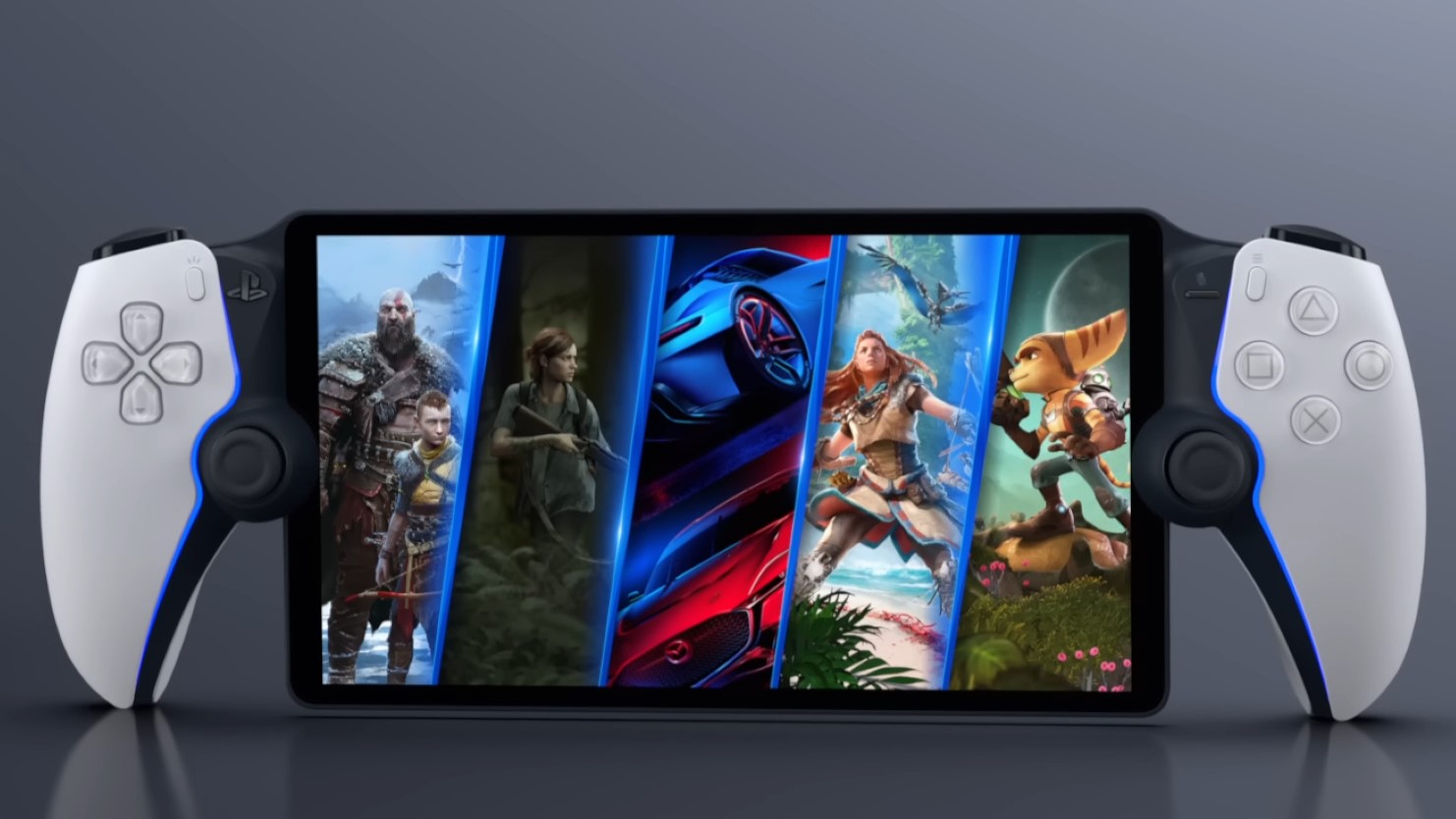
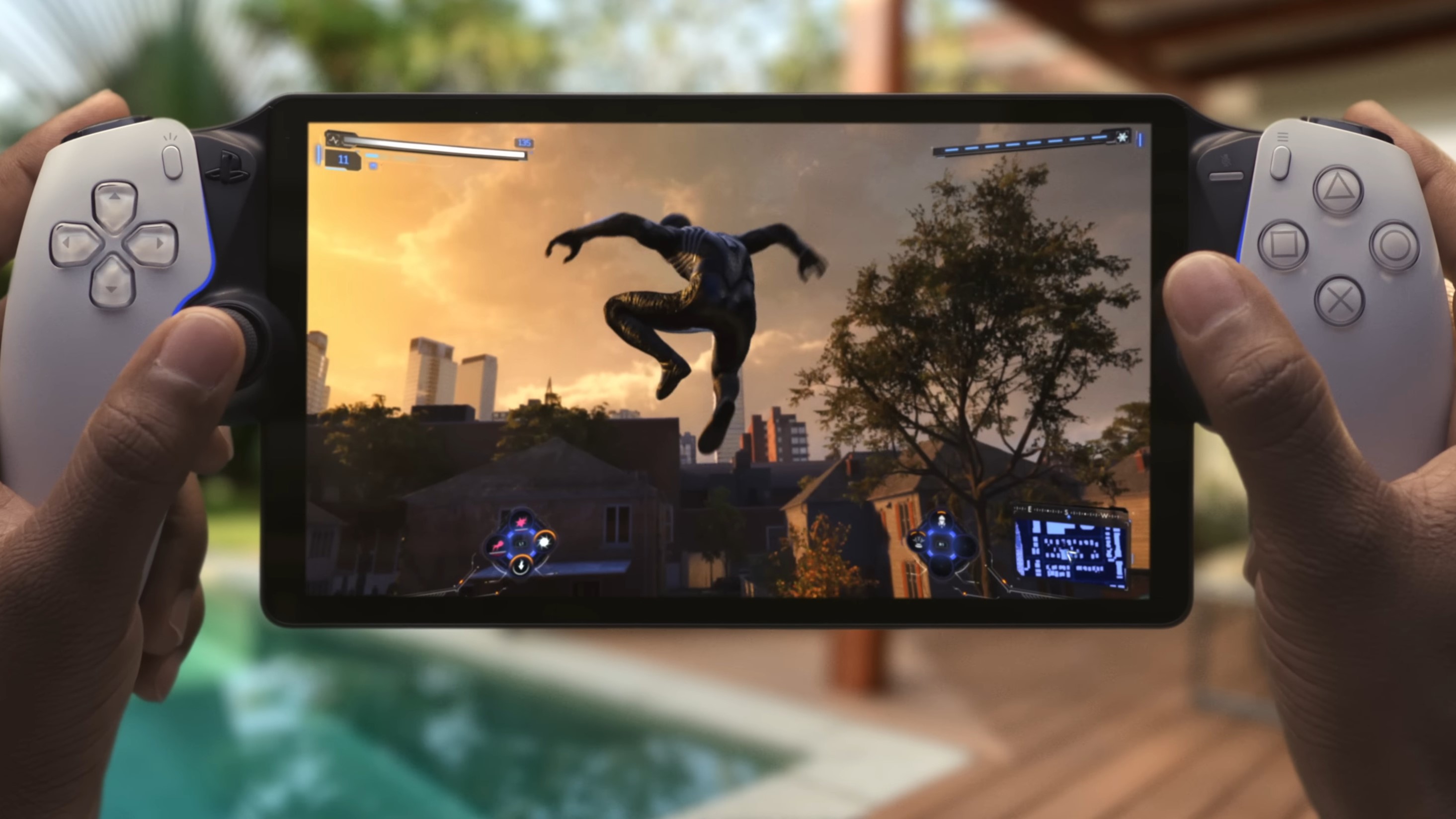
Looking to secure a unit? Get over to our where to buy PlayStation Portal article right now to find yours!
The PlayStation Portal release date is less than two weeks away now, and with pre-orders defying expectations - and running out in places at times - the interest in Sony’s latest handheld is intensifying.
It’s not quite what a lot of folks wanted from Sony’s next handheld games console, but I’m confident it’s going to find a committed and enthusiastic audience. I’m one of those excited folks, with the Portal set to revolutionize how much time I can spend gaming in a use-case scenario, as well as from an accessibility perspective. I genuinely can’t wait to get my hands on one and fold it into my life.
However, even as one of those fans, I recognize that the elephant in the Portal’s room is its lack of Bluetooth support. Yup, you won’t be able to easily pair some of the best gaming earbuds or a wireless headset to the Portal to complement its portable play.
No Bluetooth bite
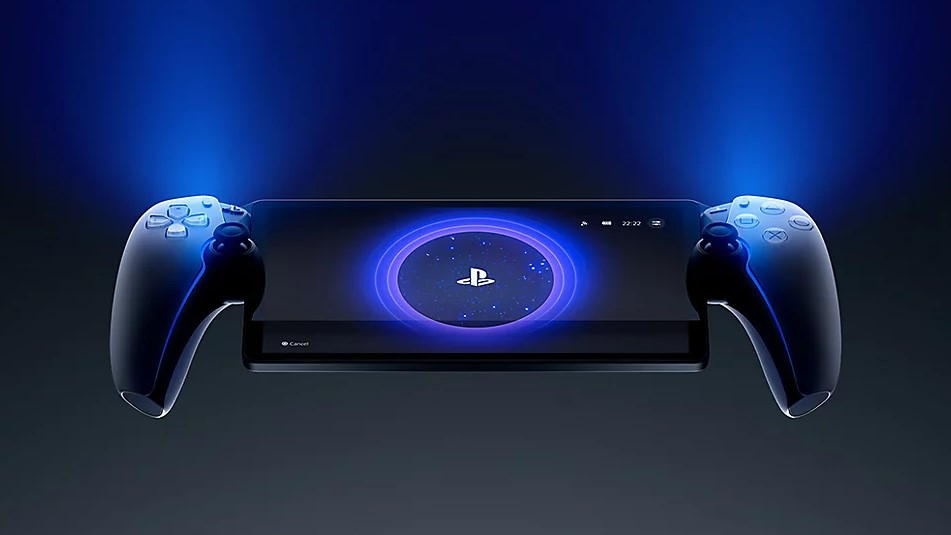
The dust has since settled from the initial reveal of this characteristic. Now, if we examine it holistically and in the context of what the device actually is, the lack of Bluetooth support is a bit easier to understand, even if it remains a frustration for some.
Without Bluetooth, you’ll be relying on Sony’s own new proprietary wireless system called PlayStation Link, which promises near-lossless audio (audio intended to have no delay in reaching you, and no dip in superb quality while doing so) - but only a couple of official products offer that connection, and they’re not launching for a little bit.
As a result, you won’t be able to pair a gaming headset to the handheld device like you would other portables, such as the Nintendo Switch and Steam Deck. Thus, forgoing PlayStation Link, you’ll only have the option to use a wired headset (as you would with a DualSense) to physically plug into the Portal.
Rather unfortunately, this last point is rammed home as the only alternative at the Portal’s release with both the PlayStation Pulse Explore earbuds and the PlayStation Pulse Elite headset, which both support PlayStation Link, launching well after the Portal itself (December 6 and February 21 respectively). Also, even if PlayStation Link is opened up to third-party brands down the line, this won’t happen for a while, so options really are limited in at least the device’s first six months on the market.
Get daily insight, inspiration and deals in your inbox
Sign up for breaking news, reviews, opinion, top tech deals, and more.
Points for consistency
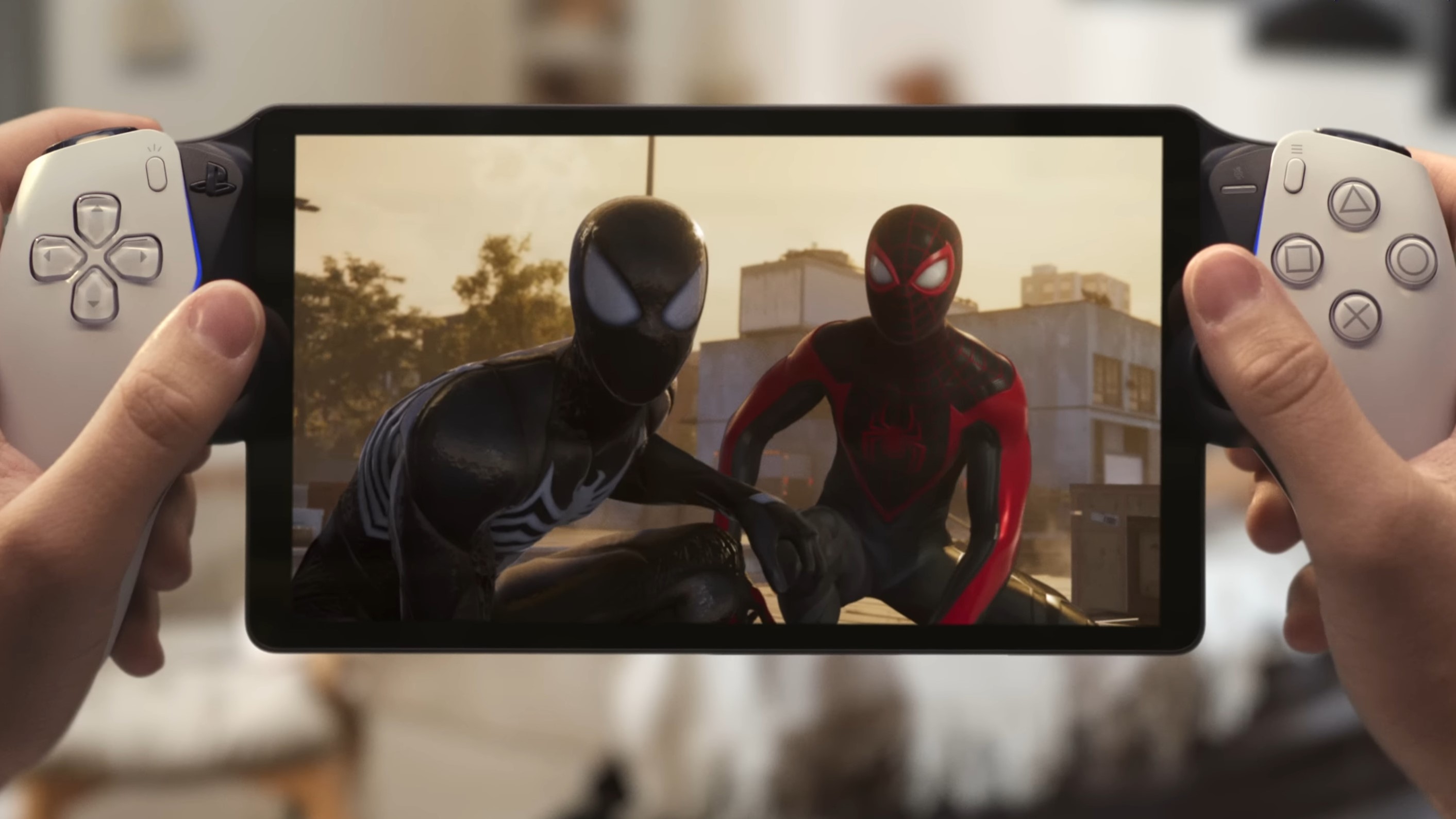
So why is Sony doing this? It’s a smart little handheld gaming device - why not just allow simple Bluetooth connectivity?
First, there is the consideration of audio lag and latency with Bluetooth. While wireless tech has come on leaps and bounds in the past decade particularly, I would still find myself stopping short of recommending Bluetooth audio for gaming generally, and especially for online or competitive gaming. It’s just not as good, and the latency and delay you get can be dreadful, and crippling to the experience - it can be like watching a movie with awful dubbing, or as bad as multi-second delays from weapons and audio cues, even on slower-paced single-player games.
Given Sony’s track record in pushing the highest-quality audio in almost all of its products, from earbuds and headphones to TVs, it’s no real surprise that the brand is going for something as seamless, lossless, and high-quality as possible. Getting a little more technical, Bluetooth audio is only at its best when it can use as many channels as possible. If those channels also had to cater for mic signal and audio, then the audio quality would be compromised further. It’s also worth noting here that the Nintendo Switch only opened up Bluetooth audio support in 2021, more than four years after it came out, and the Xbox Series X and S also don’t support it.
We’ve got to remember that the Portal is, well, exactly that: a portal to your PS5, a simple extension of it
Therefore, there’s a strong foundation of a compelling argument here that, given the PlayStation Portal is already streaming (something subject to lag itself) a PS5, a move to avoid any further lag in the audio makes sense.
Secondly, we’ve got to remember that the Portal is, well, exactly that: a portal to your PS5, a simple extension of it. Therefore it’s not a surprise that it would mirror both the use of the console and its various features and functions (or lack of). The PS5 doesn’t support Bluetooth headphones natively - nearly everything requires a dongle, and then we’re into 2.4 GHz connectivity land instead of Bluetooth. Given the main console’s lack of Bluetooth and the handheld just mirroring it; why would the Portal not behave in the same way? In this respect, Sony is just being consistent with its hardware.
Lastly, the cynical take that I know is being thrown around - even among the community looking forward to the PS Portal - is that this is a commercial move to ensure you buy another product from Sony. There might be truth to that, and I certainly couldn’t disprove it. However, the reality is that a proprietary wireless connection and specialist wireless headset or pair of buds will be better for the gaming experience on the Portal. It just stings a bit when those will cost about the same price as the handheld.
There's always a reliable option
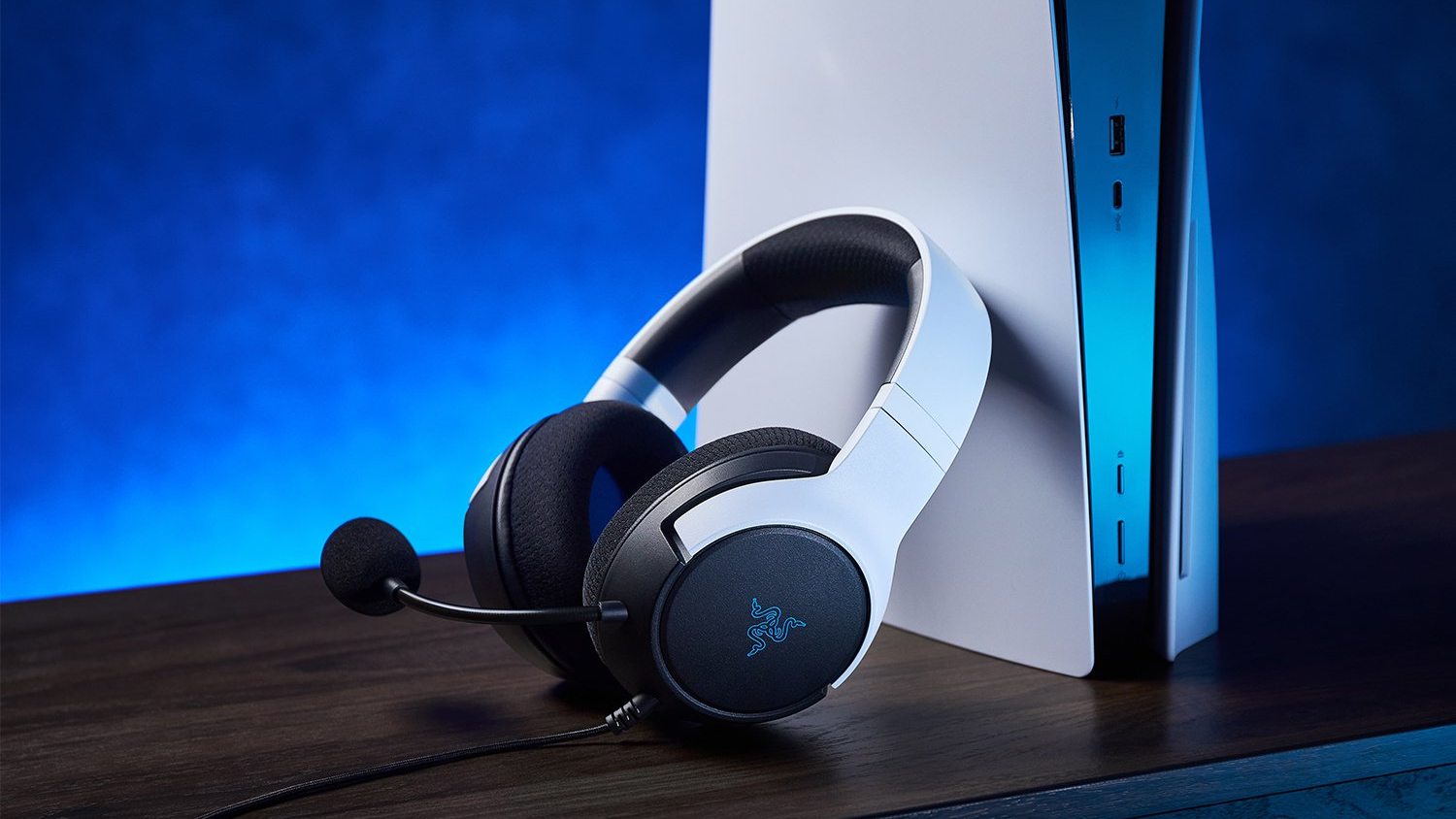
But remember, using a wired gaming headset and an audio jack connection will work and behave exactly the same way as on PS5 - you’ll still be plugging a headset into the thing in your hands. That means a bunch of the best PS5 headsets and best PS4 headsets will still be more than capable of giving you an awesome audio experience with your Portal. Heck, even some cheaper PS5-focused wired headsets like the Razer Kaira X have intentionally short cables designed for this use, so plugging a wired set into the Portal is already a well-established option that’s being actively catered to by big brands.
This sort-of-emphasis on the wired option also relates closely to how Sony is portraying the device: as a unit to use at home. While it can be used on the go, internet dependent, Sony has been very careful with how it's promoting the Portal and the use cases that it has built the Portal for. As a result, with it not seen as a truly portable, on-the-go/commute/long journey device, a wired connection will suffice.
As a result, if you’re already a PS5 owner, the Portal’s lack of Bluetooth shouldn’t be a surprise, and if your current headset has an audio jack port and cable, then it’s a non-issue.
Sure, it’d be convenient, but in reality, there’s reasoning behind the move, and with a hard-wired alternative present, the PlayStation Portal not having Bluetooth is not a problem at all.
If you’re looking for some inspiration as to what to play on the Portal if you’re getting one, check out our guides to the best PS5 games, and best PS4 games.

Rob is the Managing Editor of TechRadar Gaming, a video games journalist, critic, editor, and writer, and has years of experience gained from multiple publications. Prior to being TechRadar Gaming's Managing Editor, he was TRG's Deputy Editor, and a longstanding member of GamesRadar+, being the Commissioning Editor for Hardware there for years, while also squeezing in a short stint as Gaming Editor at WePC just before joining TechRadar Gaming. He is also a writer on tech, gaming hardware, and video games but also gardens and landscapes, and has written about the virtual landscapes of games for years.